Elizabeth Lillin Dyer (nee Hurley)
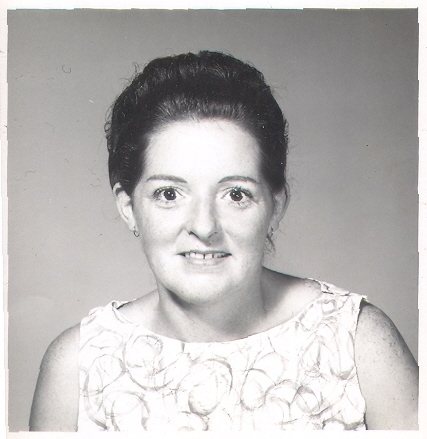

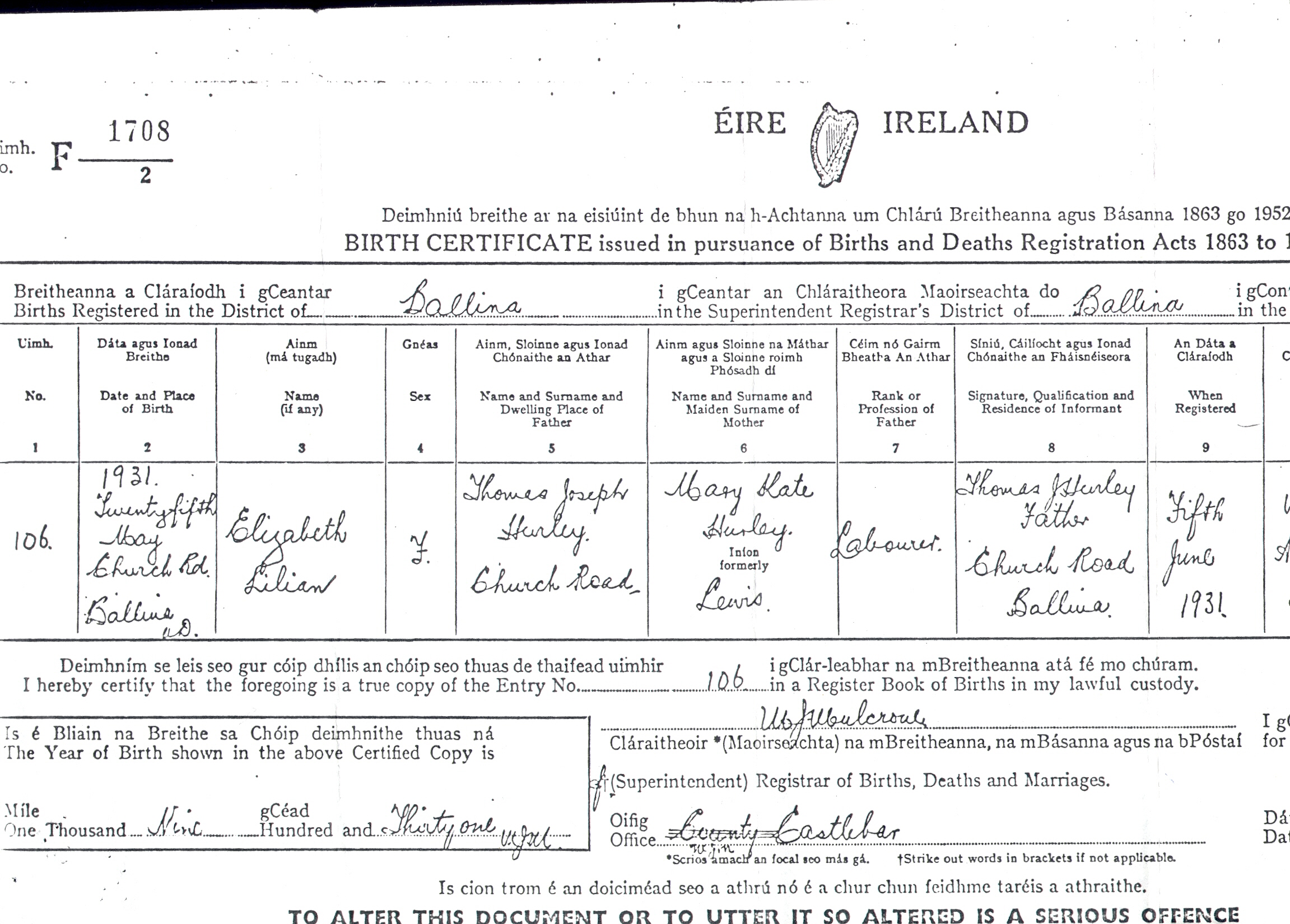
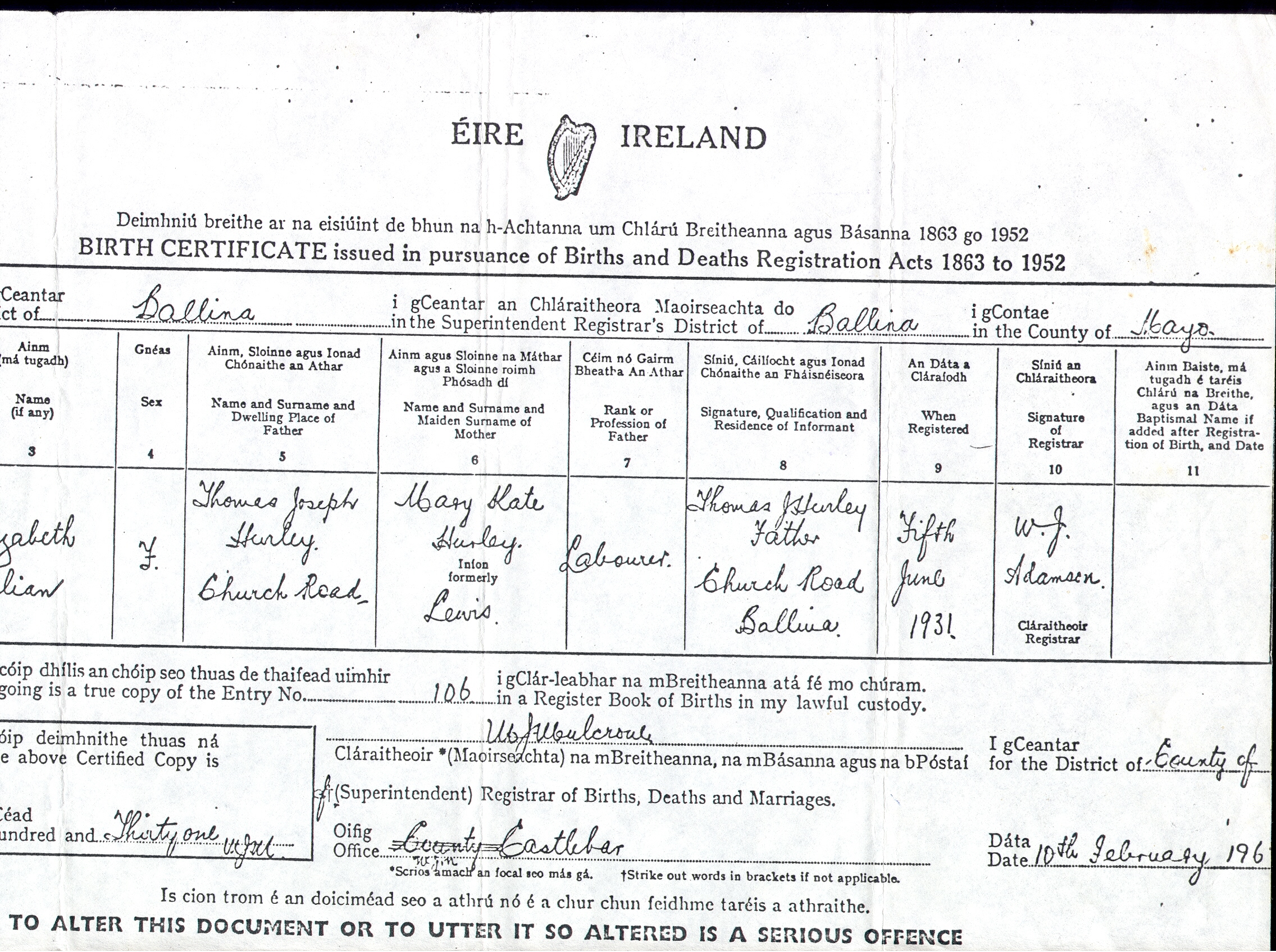
What did your mother do for a living? What were the house duties?
Well we didn't have a washing machine or vacuum cleaners. We didn't have a lot of the facilities people have today. All the children and my mother had to do everything that had to be done. We had to sweep and wash the floors, polish the floors and furniture, window cleaning, cooking and laundry. We used to wash our clothes on a wash board , it would take hours and hours. When you have family of six children, parents, grandparents and an uncle it's a lot of laundry.
What did your father do for a living?
He was a laborer, he worked for the church he kept the grounds, mowed grass, he used to have to scuffle the drive ways around, he dug graves when there were funerals. He kept the church clean. He had to light a fire Saturday nights in a big boiler down in the basement so it would be warm for the people Sunday morning. He rang the bell every Sunday. He prepared the communion table.
Did you have a variety of clothes growing up?
We didn't have a variety of clothes no. we had some things that were wore just on Sundays only. Although they were passed down from one to another, if they lasted that long. We had very ordinary clothes for the week, we didn't have school uniforms, and we just had one pair of shoes.
How was the atmosphere you grew up in?
Happy, good hard working parents, my mother was the stronger one of the two, daddy was a pushover…our house had three bedrooms a living room, and a kitchen. That was first house we had a bathroom. We had no running water, the toilets was a two-seater down at the end of the garden, with a stream running underneath. Just a wooden seat with two holes in it.
What was the average day like growing up in Ireland?
It's a long story but I'll shorten it the best I can. We got up really early we all had chores to do. We had to light a fire before we could have any hot water or any heat in the house. We had to cook breakfast for my grandfather and my uncle and all the rest of us, wash the dishes put them away. We had a hall way that had to be washed everyday, and dusted, and then we head our way to school. We walked probably 4 miles to school everyday and then walked home. Then did some more chores in the evening.
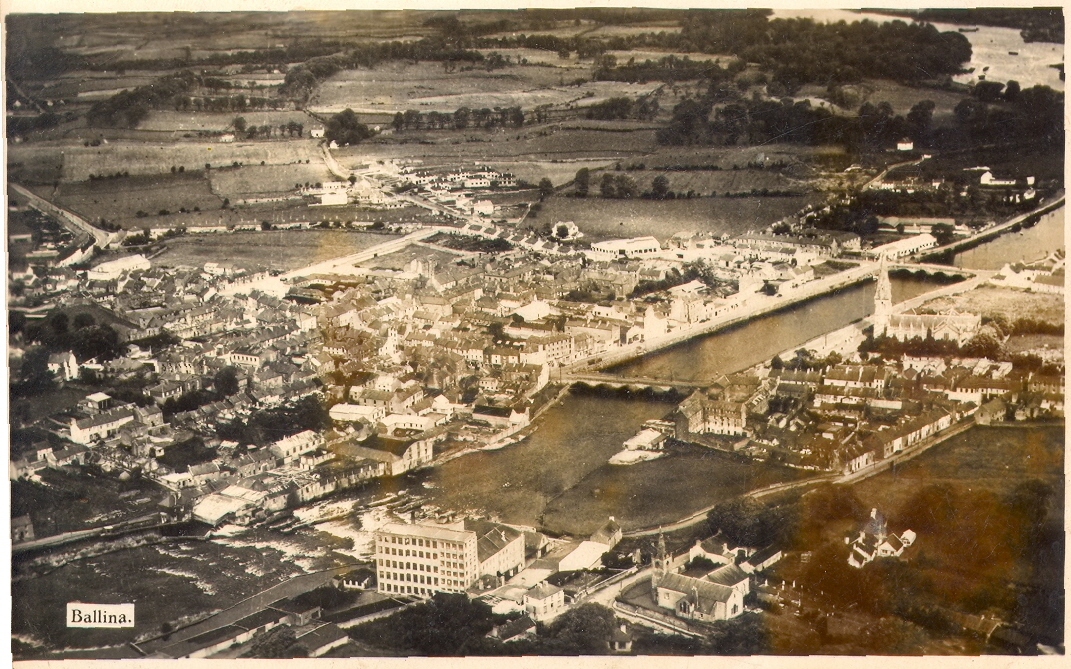
How would you say Ballina has changed compared to the picture?
You wouldn't recognize it. The flour mill is gone completely. It's all houses now.
What did you do for fun?
Played outside you know, hide n seek. That the kind of things all kids did. There wasn't anything inpaticular really. It was a hard life, it really was, but that's the way it was you didn't expect anything different you just went along with it. Basically that's what it was.
Did yall have a garden, if so what did you grow in your garden?
Everything, potatoes, cabbage, onions, nothing exotic just basics. We had a way of preserving potatoes for the winter when the crop came in. Used to dig like a ditch in the ground, and you'd put all the potatoes in there and cover them all with soil. You'd dig them up as you wanted them through the winter. The wouldn't grow anymore, we would just preserve them. We ate a lot of potatoes, winter and summer. Cabbage was big thing with us. Brussels sprouts were another one that we grew a lot of. We didn't grow tomatoes very well because they need a hot house, because it's so cold. We had our own chickens and eggs. Our next door neighbors had cows that's where we got our milk.
What was it like going to a parochial school?
Kinda funny in a way, you didn't wanna stay there you just got yourself excused and went home. The teacher was very comical because you would say you wenrt felling well and ask to go home, he'd say to just go home. For discipline they would tap you on the hand with a cane, and they could whip with it. He didn't do it too often though he was a push over. He was rougher on the boys than he was the girls. The classroom was all ages, they went over everything but science. We really didn't have a lot of homework. It wasn't enforced much really. It was a very simple school. Same teacher that taught my mother was teaching when we went to school. So he was getting up there and was a push over in light of it.
What was your earliest childhood memory?
I remember my aunt and uncle taking my sister and me in to see our new brother when he was born. Sheelagh my sister said that he was hers, so I wanted to know where mine was!
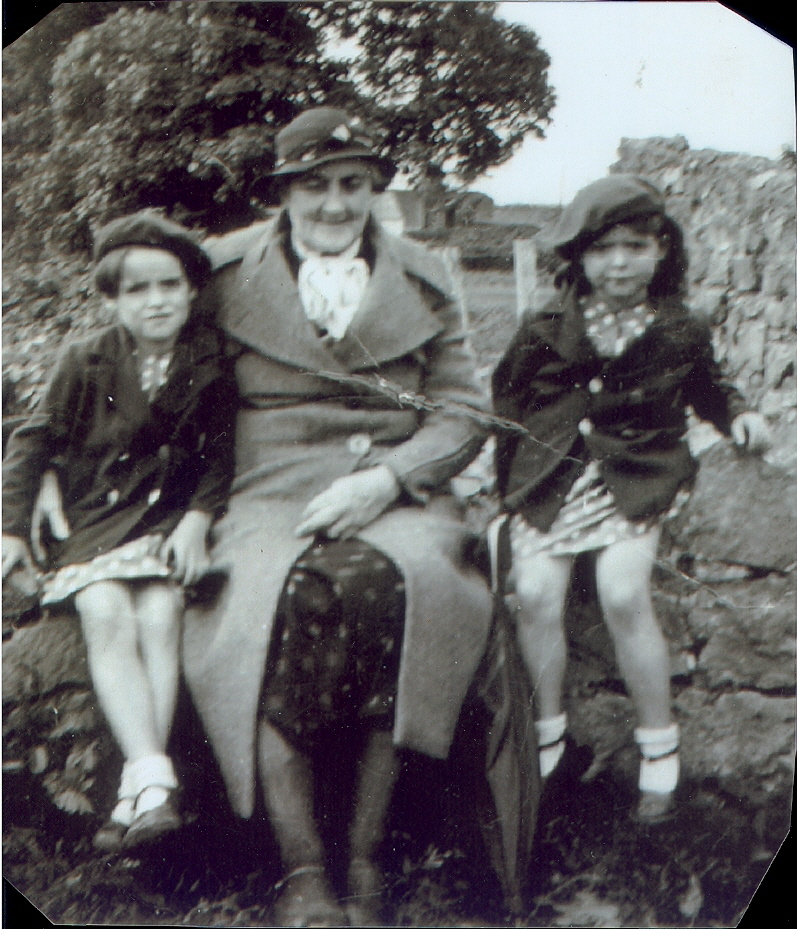
What was your favorite memory?
Christmas time at home was lovely. I always liked when everyone was together. They made Christmas really special for us, we believed in Santa for a long time. We didn't know daddy had a Santa suit. We'd stay awake pretending to be asleep and we'd see Santa clause come in our room, and you know what you see is what you believe. We were nieve enough to believe that for a long time.
Did you have anything electronic growing up?
We had a radio, a funny kind, I remember one radio that daddy had, you had to put earphones on to listen to it. It was like cylinders or something, I don't know. It was a weird looking thing but the only way you could hear it is if you had earphones on. One day he got mad at my brother he had the earphones on he forgot and he pulled the whole thing down and it broke. We went a long time without radio. We had one radio in the kitchen. We got our first telephone when I lived in London, it was a long time before we got a phone at all. We wrote letters.
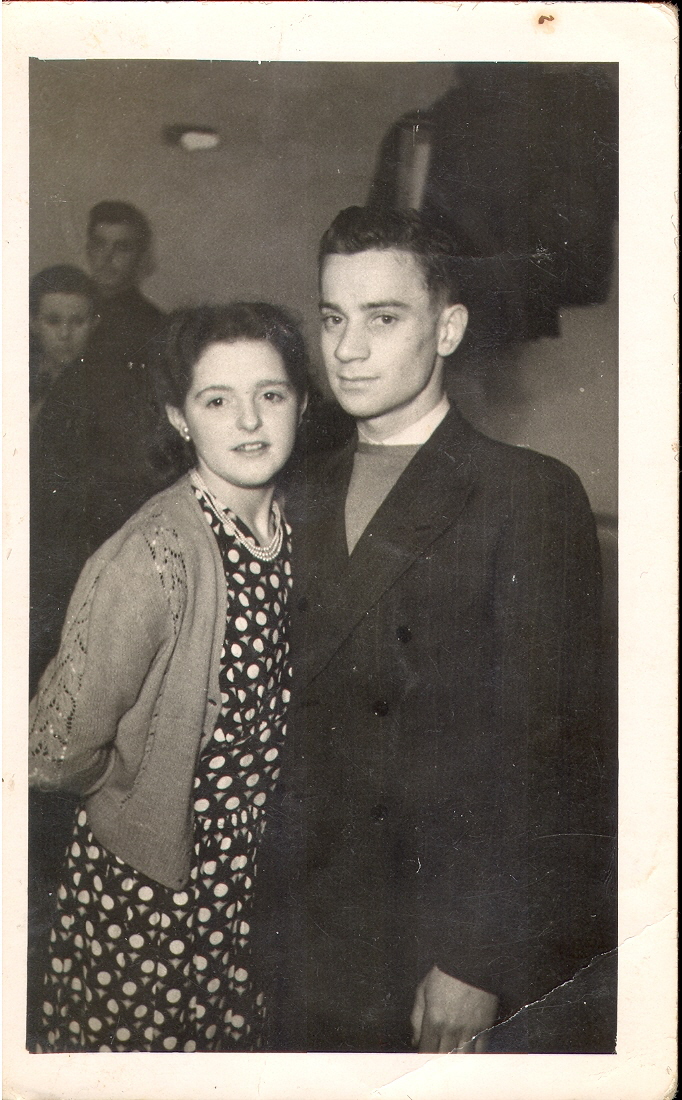
Why did you come to the U.S?
Well we were kind of ready to retire from the life we were living in Bermuda and we always said when the last job Eric was in finished then we'd come here, and then that's what we did.
What were you doing in Bermuda?
Well living, Eric had a job there in a band. It was just another place we lived before the use, we had many stepping stones along the way to the U.S.

What was your first thought when you came to America?
It was my dream realized! As long as I could remember as a child I dreamt of coming to America to live. It was always New York and I actually realized my dream by walking down the streets in New York arm in arm with Eric not that long ago. It was like this is what I dreamt of all my life, im here. I don't live in New York and that's not where id really like to live but that's all I knew, if you'd see a movie or anything like that it was out of New York or Hollywood. I always thought it be a good place to be I had two aunts that lived there on my daddy's side.
How were you able to come to the U.S?
My sister lived in California she was an American citizen, between her and Geoffrey my son we were able to come here legally with no problems. I had an aunt that lived in Washington D.C., that's were we first came we went to visit my aunt then we came down here to San Antonio.
What did you do when you moved to the U.S?
We lived at Geoffrey's for awhile, we helped him take care of his daughter. We just did music really, it took us awhile to get going but that's all we've done.
What did you bring with you when you moved to the U.S?
Quite a bit mostly sentimental stuff, it wasn't a lot for someone moving home, but it was enough I guess. I can't remember how many pieces we had really, but we took it all with us, we didn't send it or anything. I brought my dishes and pots and pans and personal things.

Do you have any family recipes that you still cook?
Oh yeah, we don't bake our ham we boil them. We boil the cabbage and that is where that ham is also cooked. You have little red potatoes the smallest ones you can find and boil them. I serve it with no sauce or anything just butter and mustard for anyone that wants any. That's a traditional Irish dinner. I also make Irish soda bread, theres no yeast in it it just baking soda and butter.
What would you say are major differences between here an Ireland?
I don't know how big the differences are today because Ireland had come an offal long way. When I went over there in 2000 it's very big and busy. It's still lovely it's a beautiful place, but they've lost a lot of there charm they don't really have anymore cottages, it they do they modernize them. It was only people who had money had a car everybody either used a bicycle or horses and carriages. You walked mostly everywhere. There were very few modern conveniences. The one thing that stood out about the U.S was the vastness, it's so huge.
Was it shocking to experience the new technology that was being developed?
Yes, it is everyday something else is changing; we find that difficult to keep up with. The biggest experience was the stereo. The first experiment we did with stereo was by standing in the living room, turning the TV on one side of the room and the radio on the other facing each other. That was the first experiment of stereo that we witnessed. It was done by the radio and television stations. They had coordinated and everyone was told what to do for this experiment. It was on a Saturday morning. Music was coming from both sides of the room at the same time.
Did y'all have doctors growing up?
Daddy was the doctor, medicine was homemade, daddy used to make a potion he'd call it for when we had colds. Don't ask me what he put in it but it worked. You never went to a doctor unless you were really really sick. Probably the biggest scares of me growing up was epidemic of meningitis. We had some very close school friends die because we didn't have to medicine to treat it or protect the kids. Someday our friends went away with it, but that's the way it was. My mother was a victim of polio. She had one leg she never used because of it, she always walked with a crutch or stick. She was sick quite a bit, but lived to be 83.
Is there anything else you would like to add to this interview?
The greatest thing was realizing my dream had come true. It was just amazing! All my life I had always dreamed of coming to the U.S and I finally came and now im still here it's just wonderful. I wouldn't want to be anywhere else.
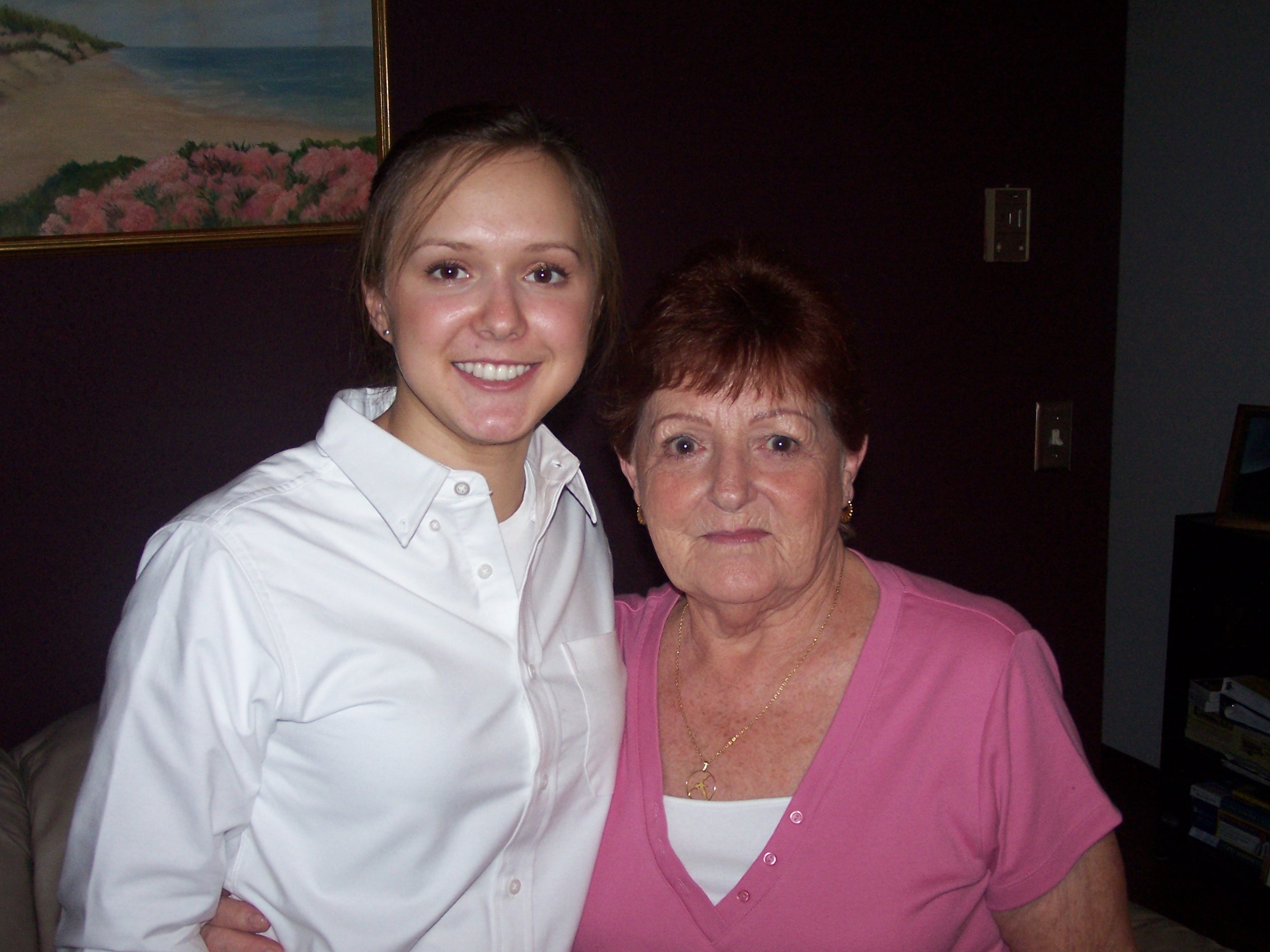
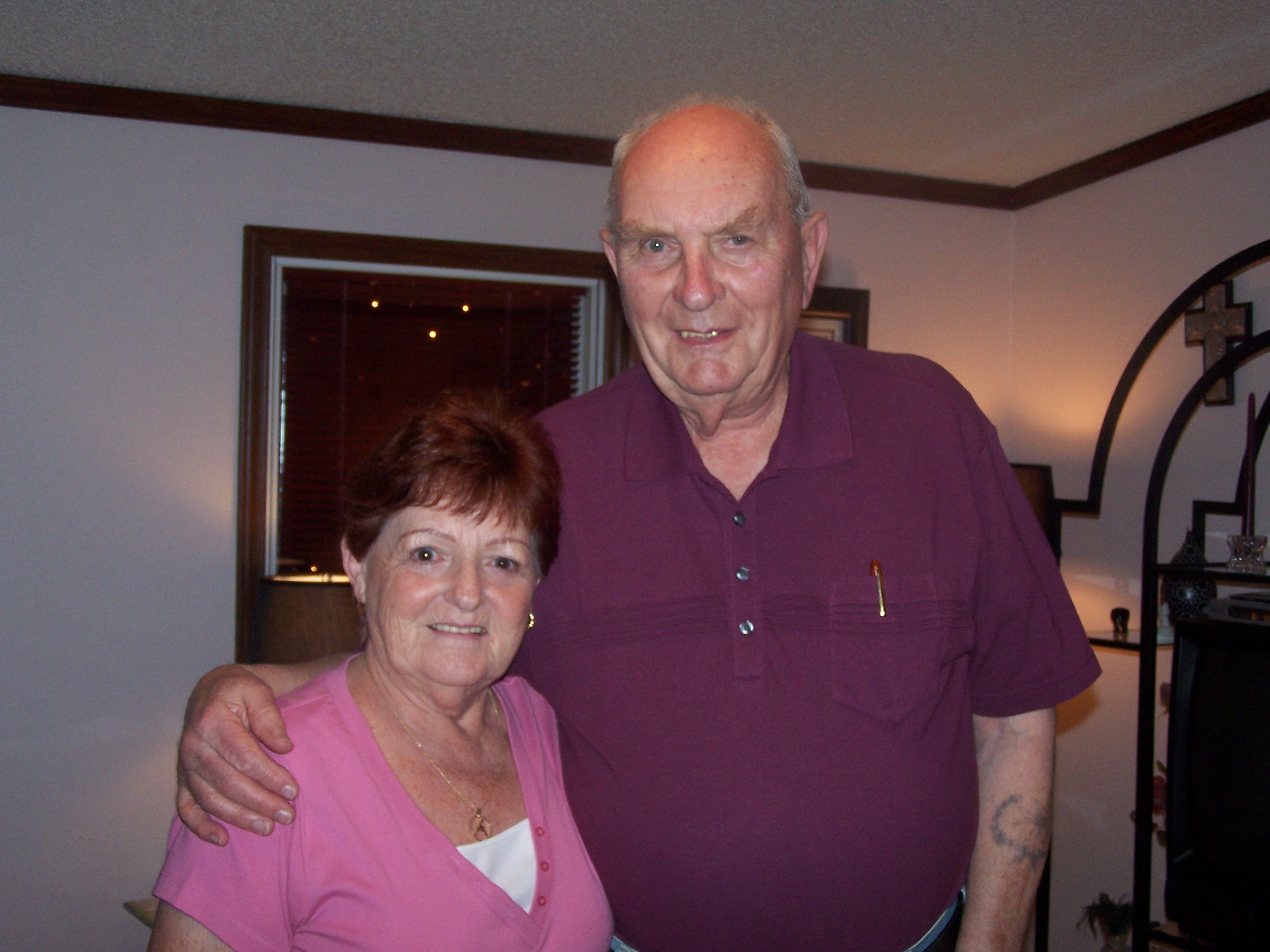
Ballina County Mayo,Ireland. A site for information about Ballina Mayo Ireland. Information for tourist, gives background about Ballina location, hotels, and other aspects of Ireland.copyright Mayo Ireland Ltd 1996-2007.
Ireland, England.Itraveluk.co.uk is a sites that gives maps of the Uk and Ireland.
Small Town Texas Projects. Palo Alto College student/s (anonymous) project on the town of New Berlin, Texas. This Small Town Project was completed in the 2006 as a requirement for Assistant Professor of Robert Hines's History 1302 class.
Wash board.The Ceredigion County coucil, 2008 website gives information and pictures of displays in Ceredigion Musem of the agricultural and rural life style.
Bermuda. Funded by The Royal Gazatte Bermudas newspaper website by Keith Archibald Forbes, sponsered by Bermuda online multi-national 2008. This website is information on Bermudas culture, economy, geography, history, religion and tourist information.
Irish Soda bread.Wikipedia is a free encyclopedia of peoples own defenitions and information about differnet things, not all of the information is accurate, but is of peoples opinion. This webpage is trademark of Wikimedia Foundation inc., 2008.
Polio.The World Health Organization sponsors Global polio eradication initiative 2008; The diesease and Virus.Polio is a disease that causes paralysis that is caused by a virus.There is no cure for polio but immunization will help reduce the risk.
Photographs and/or documents on this website were provided by Elizabeth Lillian Dyer. Collected from a box in the storage room in 2008.